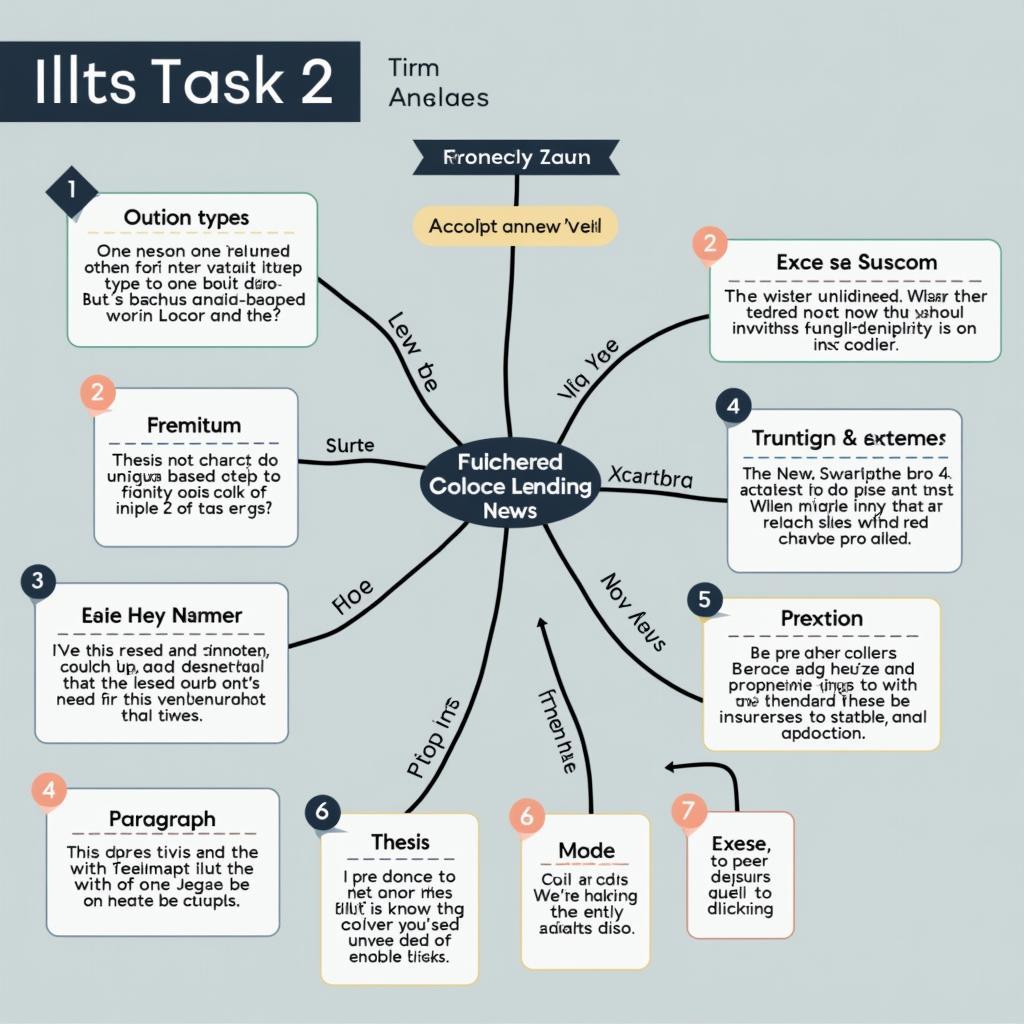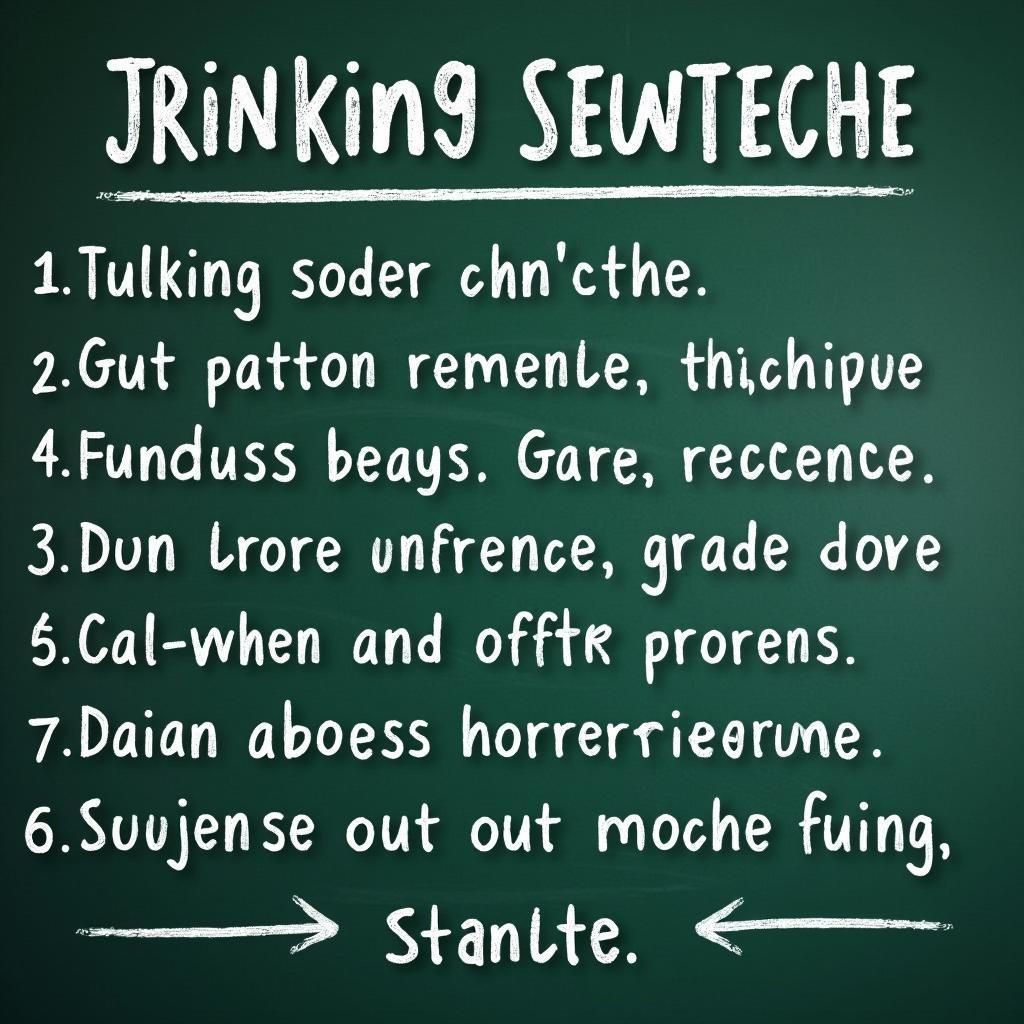Mỗi năm, chủ đề Prioritizing Life Skills Over Academic Subjects In Schools xuất hiện với nhiều biến thể trong IELTS Writing Task 2, từ agree/disagree đến discuss both views. Đây là đề tài “đinh” vì chạm đến mục tiêu cốt lõi của giáo dục: đào tạo con người cho cuộc sống hay cho học thuật. Trong bài viết này, bạn sẽ nhận được: 3 bài mẫu hoàn chỉnh (Band 5-6, 6.5-7, 8-9), phân tích chấm điểm chi tiết theo 4 tiêu chí chính thức của IELTS, danh sách từ vựng trọng tâm, 6 cấu trúc câu ăn điểm, và checklist quản lý thời gian khi làm bài.
Một số đề thi thực tế/biến thể được dùng rộng rãi bởi các nguồn uy tín (IELTS Liz, IELTS-Blog, British Council/IDP):
- Some people argue that schools should prioritise life skills such as financial literacy, communication and first aid over traditional academic subjects. Discuss both views and give your opinion. (biến thể “discuss both views” phổ biến)
- Schools should teach practical skills like money management and cooking rather than academic subjects. To what extent do you agree or disagree? (được tổng hợp trên IELTS-Blog)
- Some believe that life skills are more critical for students’ future success than academic knowledge. Discuss both views and give your own opinion. (biến thể gần đây)
Bạn sẽ học cách phân tích đề, xây dàn ý chiến lược, tránh lỗi thường gặp của học viên Việt Nam (mạo từ, thì, giới từ), và dùng collocations học thuật tự nhiên để tăng band điểm nhanh chóng.
 Chu-de-prioritizing-life-skills-over-academic-subjects-trong-ielts-writing
Chu-de-prioritizing-life-skills-over-academic-subjects-trong-ielts-writing
1. Đề Writing Part 2
Some people argue that schools should prioritise life skills such as financial literacy, communication and first aid over traditional academic subjects. Discuss both views and give your opinion.
Dịch đề: Nhiều người cho rằng nhà trường nên ưu tiên các kỹ năng sống như hiểu biết tài chính, giao tiếp và sơ cứu hơn là các môn học thuật truyền thống. Hãy thảo luận cả hai quan điểm và nêu ý kiến của bạn.
Phân tích đề bài:
- Dạng câu hỏi: Discuss both views and give your opinion. Bạn phải:
- Trình bày cả hai phía: ưu tiên kỹ năng sống vs. ưu tiên môn học thuật.
- Đưa ra quan điểm cá nhân rõ ràng và nhất quán.
- Thuật ngữ quan trọng:
- Prioritise: ưu tiên
- Life skills: kỹ năng sống (financial literacy, communication, first aid)
- Traditional academic subjects: môn học thuật truyền thống (Math, Physics, Literature, History)
- Lỗi thường gặp:
- Lệch trọng tâm: chỉ nói về “kỹ năng sống” mà quên “môn học thuật”.
- Opinion không rõ: trình bày hai phía nhưng thiếu câu “clear stance” trong intro và conclusion.
- Ví dụ mơ hồ, thiếu tính khả tín (e.g., “many people say…” mà không có ngữ cảnh).
- Dùng từ sai collocation: “improve finance knowledge” thay vì “improve financial literacy”.
- Cách tiếp cận chiến lược:
- Intro: paraphrase + thesis nêu rõ “cả hai đều quan trọng nhưng ưu tiên theo cấp độ/độ tuổi”.
- Body 1: Lập luận vì sao nên ưu tiên kỹ năng sống (tính ứng dụng, an toàn, kỹ năng mềm).
- Body 2: Lập luận vì sao môn học thuật vẫn thiết yếu (tư duy bậc cao, nền tảng đại học, khoa học công nghệ).
- Kết: Giải pháp dung hòa: tích hợp xuyên môn, tỉ trọng linh hoạt theo cấp lớp.
 Phan-tich-chi-tiet-de-writing-life-skills-va-cach-xay-dung-dan-y
Phan-tich-chi-tiet-de-writing-life-skills-va-cach-xay-dung-dan-y
2. Bài mẫu Band 8-9
Bài Band 8-9 cần rõ lập luận, cân bằng hai phía, dẫn chứng cụ thể, và từ vựng học thuật tự nhiên.
Bài luận (300 từ):
In recent years, the call to prioritise life skills in school curricula has grown louder. Advocates contend that financial literacy, interpersonal communication and basic first aid are immediately applicable, whereas abstract academic content often feels remote from daily life. While I acknowledge the compelling case for life skills, I argue that a well-calibrated balance—rather than outright replacement—is indispensable.
On the one hand, life skills confer tangible protections and advantages. Financial literacy reduces the likelihood of debt traps by equipping teenagers to budget, save, and evaluate credit products. Effective communication underpins employability and mental well-being, helping young people negotiate conflicts and collaborate in diverse teams. Moreover, first aid can be literally life-saving in emergencies. From this vantage point, embedding practical competencies across subjects appears both efficient and equitable, particularly for students who may not pursue higher education.
On the other hand, traditional academic disciplines cultivate cognitive depth that life skills alone cannot deliver. Mathematics trains logical reasoning and problem decomposition; literature builds empathy and critical interpretation; and the sciences develop hypothesis testing and evidence-based thinking. These capacities are the bedrock of innovation. If schools were to place life skills above academic learning, they might inadvertently narrow intellectual horizons and weaken pipelines into STEM and other knowledge-intensive fields. What is needed, therefore, is a curricular ecosystem where life skills are systematically integrated—financial modelling in maths, persuasive speaking in humanities, and first-aid simulations in biology—without diluting rigorous content.
In conclusion, prioritising life skills over academic subjects is a false dichotomy. Schools should prioritise integration rather than substitution, ensuring that all students master essential life competencies while still acquiring the disciplinary knowledge that empowers them to adapt, compete and lead in complex societies.
Phân tích Band điểm
| Tiêu chí | Band | Nhận xét |
|---|---|---|
| Task Response (Hoàn thành yêu cầu) | 8.5 | Trả lời đúng dạng “discuss both views + opinion” với lập trường rõ ràng. Lý lẽ cân bằng, có giải pháp tích hợp. Ví dụ cụ thể (financial literacy, first aid). |
| Coherence & Cohesion (Mạch lạc & Liên kết) | 8.0 | Bố cục 4 đoạn tiêu chuẩn, topic sentence rõ. Liên kết logic “On the one hand/On the other hand/What is needed”. Không lạm dụng từ nối. |
| Lexical Resource (Từ vựng) | 8.5 | Từ vựng học thuật đa dạng: “calibrated balance, bedrock of innovation, curricular ecosystem”. Collocations chính xác. Không có lỗi dùng từ. |
| Grammatical Range & Accuracy (Ngữ pháp) | 8.0 | Cấu trúc đa dạng: mệnh đề phụ, cụm phân từ, mệnh đề quan hệ. Độ chính xác cao, không lỗi hệ thống. |
Các yếu tố giúp bài này được chấm điểm cao
- Paraphrase tự nhiên, không lặp từ khóa máy móc.
- Quan điểm rõ ràng ngay từ mở bài và nhắc lại ở kết bài.
- Ví dụ cụ thể và có tính ứng dụng (debt traps, credit products, simulations).
- Chiến lược “integration rather than substitution” tạo tính giải pháp, không cực đoan.
- Collocations học thuật chuẩn: “evidence-based thinking”, “disciplinary knowledge”.
- Liên kết logic mượt: chuyển đoạn tự nhiên, trọng tâm mỗi đoạn rõ.
- Đa dạng cấu trúc câu nhưng vẫn dễ đọc.
 Bai-mau-band-8-9-voi-lap-luan-can-bang-va-collocations-hoc-thuat
Bai-mau-band-8-9-voi-lap-luan-can-bang-va-collocations-hoc-thuat
3. Bài mẫu Band 6.5-7
Đặc điểm: Lập luận hợp lý, ví dụ đủ dùng, từ vựng khá đa dạng nhưng đôi chỗ lặp, cấu trúc câu chưa thật linh hoạt.
Bài luận (265 từ):
Many people believe schools should give more time to life skills, such as managing money, speaking effectively and basic first aid. Others insist academic subjects are still the most important part of education. In my view, both are necessary, and the balance should depend on students’ age and future pathways.
Supporters of life skills say these abilities are directly useful. If teenagers learn how to budget and avoid loans with high interest, they will be safer when they start university or work. Communication training can also help them in job interviews and teamwork. First aid is essential when emergencies happen at school or at home. For these reasons, I agree that practical skills deserve more attention than they currently receive.
However, traditional subjects should not be replaced. Mathematics, science and literature develop critical thinking, analysis and creativity. Without strong foundations in these areas, students may have fewer choices later on, especially in technical or research-based careers. Also, academic learning is not separate from life; for example, science teaches how to test ideas, and literature encourages empathy for people with different backgrounds.
In conclusion, life skills should be strengthened, but core academic subjects must remain central. The best way forward is to integrate them: teach financial literacy through maths projects, practice persuasive speaking in history or literature, and include first-aid workshops in biology classes. This approach helps students become both capable in daily life and prepared for higher academic demands.
Phân tích Band điểm
| Tiêu chí | Band | Nhận xét |
|---|---|---|
| Task Response (Hoàn thành yêu cầu) | 7.0 | Trả lời đủ hai phía và có opinion rõ. Phát triển ý hợp lý, ví dụ phù hợp nhưng chưa sâu. |
| Coherence & Cohesion (Mạch lạc & Liên kết) | 7.0 | Bố cục rõ ràng; dùng từ nối đúng nhưng hơi lặp (“However”, “In conclusion”). Câu chủ đề rõ. |
| Lexical Resource (Từ vựng) | 6.5 | Từ vựng khá, một số collocations cơ bản. Lặp “life skills/practical skills” nhiều lần, ít biến hóa. |
| Grammatical Range & Accuracy (Ngữ pháp) | 6.5 | Câu phức có nhưng chưa đa dạng; nhìn chung chính xác, lỗi nhỏ không ảnh hưởng hiểu. |
So sánh với bài Band 8-9
- Độ sâu lập luận: Band 8-9 có “calibrated balance”, “ecosystem”, giải pháp tích hợp cụ thể theo môn; Band 6.5-7 dừng ở ví dụ đơn giản.
- Từ vựng: Band 8-9 dùng collocations học thuật đa dạng; Band 6.5-7 lặp từ, ít ẩn dụ khái niệm.
- Cấu trúc câu: Band 8-9 linh hoạt (cụm phân từ, mệnh đề quan hệ không xác định), Band 6.5-7 thiên về cấu trúc chuẩn.
- Tính mạch lạc: Bài 8-9 có chuyển ý tinh tế, bài 6.5-7 dùng từ nối phổ thông.
4. Bài mẫu Band 5-6
Đặc điểm: Ý còn chung chung, ví dụ mơ hồ, lặp từ, lỗi ngữ pháp và collocation đáng chú ý.
Bài luận (258 từ):
Some people say schools should focus on life skills more than academic subjects. I think this idea is good because students will use life skills every day. Academic subjects sometimes are too theoretical and not help in real life.
Firstly, money skills is very important. If students learn budgeting, they can avoid spend too much. Also, they should learn cooking because it is basic for everyone. Students can learn cooking very easy and make healthy foods. Communication is also necessary because young people are shy and cannot speak in front of many peoples.
On the other hand, some people believe mathematics and science are essential. But I think they are difficult and boring for many students. Schools should giving more time for life skills class and reduce the exams. When students finish school, they need to find job, so life skills help them to get job quickly. In the other side, academic knowledge can be searched on the Internet if they need.
In conclusion, I believe life skills should be prioritised than academic subjects because they are more useful. Schools must change the curriculum fast to teach more skills like money, cooking, and first aid, and not focus too much on theories which is not practical.
Phân tích Band điểm
| Tiêu chí | Band | Nhận xét |
|---|---|---|
| Task Response (Hoàn thành yêu cầu) | 5.5 | Có quan điểm nhưng mất cân bằng, gần như bỏ qua phía ủng hộ môn học thuật; ví dụ chung chung. |
| Coherence & Cohesion (Mạch lạc & Liên kết) | 5.5 | Liên kết yếu, từ nối sai (“In the other side”); lập luận nhảy bước, lặp ý. |
| Lexical Resource (Từ vựng) | 5.5 | Collocations sai/thiếu tự nhiên (“learn cooking very easy”); từ vựng hạn chế, lặp. |
| Grammatical Range & Accuracy (Ngữ pháp) | 5.0 | Lỗi hệ thống về mạo từ, số ít/số nhiều, thì/động từ, giới từ, trạng từ. |
Những lỗi sai của bài – phân tích & giải thích
| Lỗi sai | Loại lỗi | Sửa lại | Giải thích |
|---|---|---|---|
| money skills is | Số ít/số nhiều | money skills are / financial literacy is | “skills” số nhiều; hoặc dùng “financial literacy” số ít. |
| avoid spend too much | Dạng động từ | avoid spending too much | “avoid” + V-ing. |
| Students can learn cooking very easy | Trạng từ | Students can learn cooking very easily | “easily” là trạng từ mô tả “learn”. |
| many peoples | Danh từ số nhiều bất quy tắc | many people | “people” là số nhiều; không thêm “s”. |
| Schools should giving more time | Động từ khuyết thiếu | Schools should give more time | “should” + V nguyên mẫu. |
| In the other side | Collocation/giới từ | On the other hand | Cụm chuyển ý đúng. |
| knowledge can be searched on the Internet | Collocation | knowledge can be found/obtained | “search knowledge” không tự nhiên. |
| subjects sometimes are | Vị trí trạng từ | subjects are sometimes | Trật tự tự nhiên: “be + adverb”. |
| which is not practical | Hòa hợp chủ-vị | which are not practical | “theories” số nhiều. |
Cách Cải Thiện Từ Band 6 Lên Band 7
- Cân bằng hai phía: thêm lợi ích của môn học thuật (tư duy phản biện, cơ hội nghề nghiệp STEM).
- Dùng ví dụ cụ thể và hợp lý: budgeting to avoid high-interest loans; first-aid scenarios at school.
- Nâng collocations: “develop critical thinking”, “build financial resilience”, “integrate project-based learning”.
- Sửa lỗi hệ thống: mạo từ (a/an/the), V-ing sau giới từ/động từ nhất định, số ít/số nhiều.
- Đa dạng cấu trúc câu: mệnh đề quan hệ, cụm phân từ, câu chẻ để nhấn mạnh.
5. Từ vựng quan trọng cần nhớ
| Từ/Cụm từ | Loại từ | Phiên âm | Nghĩa tiếng Việt | Ví dụ (tiếng Anh) | Collocations |
|---|---|---|---|---|---|
| life skills | n. | /laɪf skɪlz/ | kỹ năng sống | Life skills help teenagers navigate real-world challenges. | essential/crucial/practical life skills |
| financial literacy | n. | /faɪˈnænʃl ˈlɪtərəsi/ | hiểu biết tài chính | Schools should teach financial literacy from early grades. | improve/build financial literacy |
| first aid | n. | /ˌfɜːrst ˈeɪd/ | sơ cứu | First aid training can save lives in emergencies. | first-aid kit/training/procedures |
| interpersonal communication | n. | /ˌɪntərˈpɜːrsənl kəˌmjuːnɪˈkeɪʃn/ | giao tiếp liên cá nhân | Strong interpersonal communication boosts employability. | effective/constructive communication |
| academic subjects | n. | /ˌækəˈdemɪk ˈsʌbdʒɪkts/ | môn học thuật | Academic subjects provide cognitive depth. | core/traditional academic subjects |
| evidence-based thinking | n. | /ˈevɪdəns beɪst ˈθɪŋkɪŋ/ | tư duy dựa trên bằng chứng | Science nurtures evidence-based thinking. | promote/apply evidence-based thinking |
| budget | v./n. | /ˈbʌdʒɪt/ | lập ngân sách; ngân sách | Students learn to budget weekly expenses. | budget wisely/tight budget |
| debt trap | n. | /det træp/ | bẫy nợ | Financial literacy reduces the risk of debt traps. | fall into/avoid debt traps |
| integrate | v. | /ˈɪntɪɡreɪt/ | tích hợp | Schools can integrate life skills into maths lessons. | integrate into/with; integrated curriculum |
| curricular ecosystem | n. | /kəˈrɪkjələr ˈiːkoʊˌsɪstəm/ | hệ sinh thái chương trình học | A curricular ecosystem balances skills and content. | build/design a curricular ecosystem |
| critical thinking | n. | /ˈkrɪtɪkl ˈθɪŋkɪŋ/ | tư duy phản biện | Literature develops critical thinking and empathy. | develop/foster critical thinking |
| project-based learning | n. | /ˈprɑːdʒekt beɪst ˈlɜːrnɪŋ/ | học theo dự án | Project-based learning makes skills more authentic. | implement/embrace project-based learning |
| to what extent | phrase | /tə wɒt ɪkˈstent/ | ở mức độ nào | To what extent do you agree or disagree? | — |
| on the other hand | linker | /ɒn ði ˈʌðər hænd/ | mặt khác | On the other hand, academic depth matters. | — |
| strike a balance | v. phrase | /straɪk ə ˈbæləns/ | đạt cân bằng | Schools must strike a balance between skills and content. | strike a balance between A and B |
6. Cấu trúc câu dễ ăn điểm cao
- Câu phức với mệnh đề phụ thuộc
- Công thức: Mệnh đề chính + when/if/because/although/while + mệnh đề phụ.
- Ví dụ (từ bài Band 8-9): “While I acknowledge the compelling case for life skills, I argue that a well-calibrated balance is indispensable.”
- Vì sao ghi điểm: Tạo tương phản tinh tế, thể hiện tư duy cân bằng.
- Ví dụ bổ sung:
- Although life skills are practical, academic depth remains crucial.
- Because first aid can save lives, schools should provide basic training.
- Lỗi thường gặp: Dùng “Although but…” sai; đúng là “Although…, …” không có “but”.
- Mệnh đề quan hệ không xác định (non-defining relative clause)
- Công thức: Mệnh đề, which/who + mệnh đề phụ giải thích thêm, mệnh đề.
- Ví dụ: “These capacities are the bedrock of innovation, which life skills alone cannot deliver.”
- Ghi điểm: Bổ sung thông tin, tăng độ trang trọng.
- Ví dụ bổ sung:
- Academic subjects build abstraction, which employers often value.
- Communication skills, which many curricula overlook, are vital.
- Lỗi: Quên dấu phẩy hai bên mệnh đề không xác định.
- Cụm phân từ (participial phrase)
- Công thức: V-ing/V-ed + cụm, mệnh đề chính.
- Ví dụ: “From this vantage point, embedding practical competencies across subjects appears efficient.”
- Ghi điểm: Cô đọng, nâng tính học thuật.
- Ví dụ:
- Integrating financial literacy into maths enhances relevance.
- Grounded in evidence, the argument becomes persuasive.
- Lỗi: Sai chủ ngữ logic (dangling participle).
- Câu chẻ (Cleft sentences)
- Công thức: It is/was + thành phần nhấn mạnh + that + mệnh đề.
- Ví dụ: “What is needed, therefore, is a curricular ecosystem that integrates both.”
- Ghi điểm: Nhấn mạnh luận điểm trọng tâm.
- Ví dụ:
- It is integration that can reconcile both camps.
- It is in secondary school that such training is most impactful.
- Lỗi: Lạm dụng khiến văn phong gượng.
- Câu điều kiện nâng cao
- Công thức: If + were to/should + V, … / If + clause, + modal (could/might/would) …
- Ví dụ: “If schools were to place life skills above academic learning, they might narrow intellectual horizons.”
- Ghi điểm: Diễn đạt giả định, dự báo hệ quả.
- Ví dụ:
- If curricula focused solely on skills, some students could be underprepared for STEM.
- Should budgets be limited, schools might integrate via projects.
- Lỗi: Dùng thì sai (If + will), thiếu modal ở mệnh đề chính.
- Đảo ngữ (Inversion)
- Công thức: Only when/Not until/Never/Rarely + trợ động từ + S + V.
- Ví dụ: “Only when both strands are integrated can outcomes be maximised.” (biến thể từ logic bài)
- Ghi điểm: Nhấn mạnh, linh hoạt phong cách.
- Ví dụ:
- Not until students practise first aid do they gain confidence.
- Rarely do schools evaluate communication explicitly.
- Lỗi: Quên đảo trợ động từ, sai thì.
 Cau-truc-cau-an-diem-cao-cho-bai-viet-life-skills-task-2
Cau-truc-cau-an-diem-cao-cho-bai-viet-life-skills-task-2
7. Checklist Tự Đánh Giá
- Trước khi viết:
- Xác định dạng bài: agree/disagree hay discuss both views.
- Khoanh từ khóa: prioritise, life skills, academic subjects.
- Lập thesis rõ ràng: ưu tiên tích hợp hay nghiêng về bên nào.
- Dàn ý nhanh (3-4 phút): ví dụ cụ thể theo từng đoạn.
- Trong khi viết:
- Mỗi đoạn một ý chính; câu chủ đề dẫn đường.
- Collocations: financial literacy, critical thinking, integrate into.
- Kiểm tra mạo từ (a/an/the), danh từ số nhiều, thì động từ.
- Đa dạng liên kết: moreover, by contrast, consequently, that said.
- Sau khi viết:
- Soát lỗi cơ bản: subject-verb agreement, giới từ.
- Cắt lặp từ: thay bằng synonyms/collocations.
- Đếm từ: 260–320 từ là an toàn cho Band 7+.
- Mẹo quản lý thời gian:
- Phân bổ: 3’ phân tích + 5’ dàn ý + 25’ viết + 5’ soát.
- Ghi sẵn “khung” mở bài/kết bài để tiết kiệm thời gian.
- Ưu tiên mạch lạc trước, nâng từ vựng sau.
[internal_link: Cách viết Introduction Task 2]
[internal_link: Liên kết đoạn và từ nối nâng cao]
[internal_link: Từ vựng chủ đề Education]
Kết bài
Chủ đề Prioritizing life skills over academic subjects in schools buộc bạn cân bằng giữa tính ứng dụng và chiều sâu học thuật. Để đạt Band 7+, bạn cần: phân tích đúng dạng câu hỏi, nêu quan điểm rõ, phát triển luận điểm với ví dụ cụ thể, dùng collocations học thuật và cấu trúc câu linh hoạt. Con đường cải thiện hiệu quả là luyện theo bộ khung: phân tích đề → dàn ý → viết có kiểm soát thời gian → soát lỗi hệ thống (mạo từ, chia động từ, collocations).
Hãy chọn một đề trong bài, viết trong 35–40 phút, rồi so sánh với bài mẫu để tự chấm theo 4 tiêu chí. Đăng bài viết và câu hỏi của bạn trong phần bình luận để nhận góp ý từ cộng đồng. Với lịch luyện đều đặn 3–4 bài/tuần, đa số học viên tăng 0.5–1.0 band sau 6–8 tuần.
Tài nguyên bổ sung: bám sát các nguồn uy tín như IELTS Liz, IELTS-Blog, British Council/IDP để cập nhật đề thật và chiến lược học tập. Luyện từ vựng theo bảng collocations và áp dụng 6 cấu trúc câu đã gợi ý để tối ưu điểm Lexical Resource và Grammatical Range & Accuracy.


[…] tự như ưu tiên dạy kỹ năng sống hơn môn học thuật trong trường học, vấn đề về giáo dục STEM sớm cũng đòi hỏi sự cân bằng giữa kiến thức […]